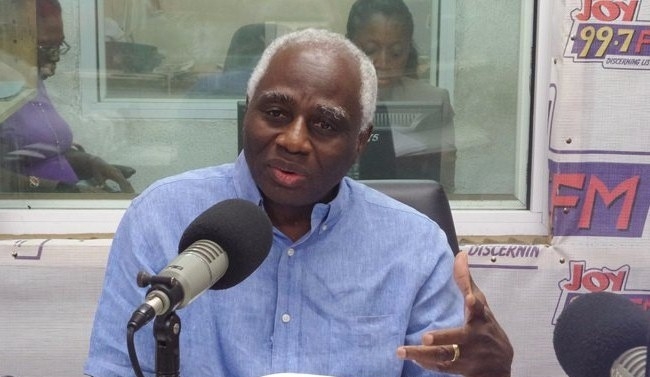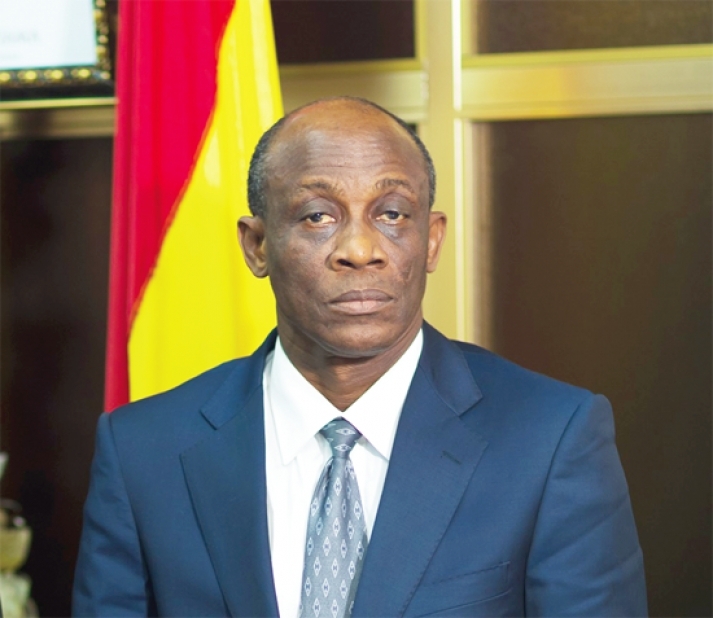
Former Chief Executive of the Ghana National Petroleum Corporation (GNPC), Mr. Tsatsu Tsikata, says Saturday’s ruling on the maritime dispute between Ghana and Ivory Coast favours Ghana in many respects.
He said out of the five provisional measures requested by Ivory Coast from the International Tribunal on the Law of the Sea (ITLOS), only one was partially granted.
Ivory Coast had filed an application for the provisional measures in the dispute between the two countries which is being arbitrated in Hamburg, Germany.
The Request for provisional measures was submitted to the Special Chamber by Côte d’Ivoire on 27 February 2015. Côte d’Ivoire requested the Special Chamber to prescribe provisional measures requiring Ghana to:
(1)take all steps to suspend all ongoing oil exploration and exploitation operations in the disputed area;
(2)refrain from granting any new permit for oil exploration and exploitation in the disputed area;
(3) take all steps necessary to prevent information resulting from past, ongoing or future exploration activities conducted by Ghana, or with its authorization, in the disputed area from being used in any way whatsoever to the detriment of Côte d’Ivoire;
(4) and, generally, take all necessary steps to preserve the continental shelf, its superjacent waters and its subsoil; and
(5) desist and refrain from any unilateral action entailing a risk of prejudice to the rights of Côte d’Ivoire and any unilateral action that might lead to aggravating the dispute.
Ghana opposed this at the public hearing, requesting “the Special Chamber to deny all of Côte d’Ivoire’s requests for provisional measures.”
According to Mr. Tsikata, only the relief requiring Ghana to “take all steps necessary to prevent information resulting from past, ongoing or future exploration activities conducted by Ghana, or with its authorization, in the disputed area from being used in any way whatsoever to the detriment of Côte d’Ivoire,” was partially granted by the Tribunal.
The ITLOS in a ruling on the request by the Ivorians on Saturday, said in part, “the suspension of ongoing activities conducted by Ghana in respect of which drilling has already taken place would entail the risk of considerable financial loss to Ghana and its concessionaires and could also pose a serious danger to the marine environment resulting, in particular, from the deterioration of equipment.
“It therefore considers that an order suspending all exploration or exploitation activities conducted by or on behalf of Ghana in the disputed area, including activities in respect of which drilling has already taken place, would cause prejudice to the rights claimed by Ghana and create an undue burden on it and that such an order could also cause harm to the marine environment.”
Mr. Tsikata told Joy FM’s Super Morning Show Monday this paragraph is instructive and means a lot for Ghana.
Although the Tribunal ordered that “Ghana shall take all necessary steps to ensure that no new drilling either by Ghana or under its control takes place in the disputed area, the former GNPC boss said all wells in the Tweneboa, Enyirah and Ntome (TEN) oil fields have been fully developed and no new drilling is required.
The order, therefore, is of no effect, he asserted.
Private legal practitioner, Samson Lardy Anyenini, agreed largely with Mr. Tsikata but cautioned against complacency in the matter.
He said the admission by ITLOS that Ivory Coast has a plausible cause of action in the case should indicate to Ghana that it cannot take things for granted.
Mr. Anyenini said the Tribunal failed the parties, but particularly Ghana, by delivering a ruling that lacks exacting clarity.
He said the Special Chamber ought to have given absolutely clear and unambiguous orders to settle the dispute over the preliminary reliefs being sought by Ivory Coast.
Giving orders that require cooperation by the two countries to enforce is not a very progressive decision, he said.
Source: Joy Online



